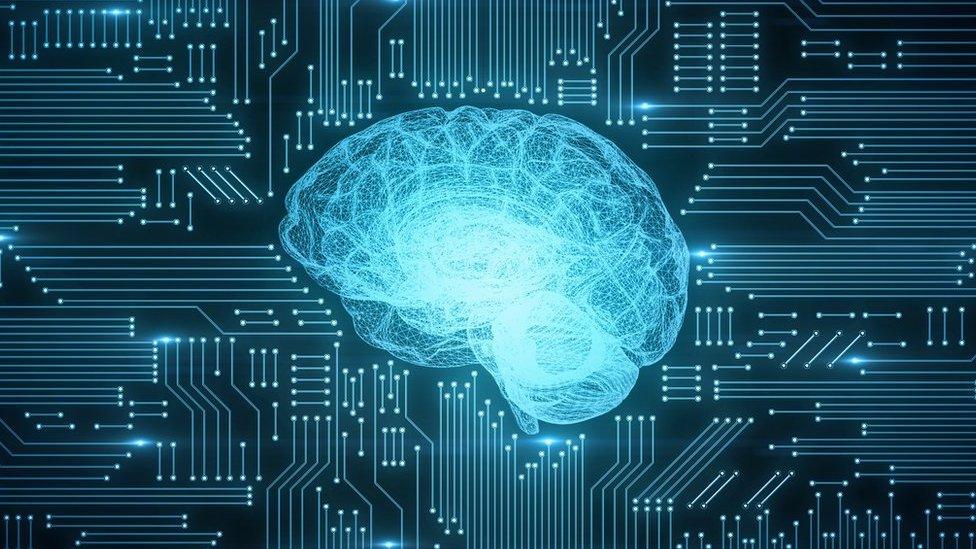Word of the year: AI is the Collins' Dictionary word of 2023
- Published
- comments

AI - which stands for artificial intelligence - is this year's Collins' Dictionary word of the year.
AI is a technology that means a computer can act in a human way - by making independent decisions without someone having to tell it what to do.
The dictionary company Collins' said although the term has been around for a while, everyone is talking about it in 2023.
But how many other words of the years do you know? Try out our Newsround word of the year quiz, and let us know how you did in the comments.
Don't forget to let us know how you did in the comments
Why has everyone been talking about AI in 2023?

There were some fears that pupils and students would use AI to help them do homework or cheat in tests or assignments
The idea of AI has been around for a long time.
It featured in many science fiction books in the 20th Century, when we were learning more about technology and what it could do for us.
In 2023 AI is used in more places than you might realise.
Artificial intelligence helps streaming apps know what TV shows or films to recommend to you. It's also used in smart speakers, like Alexa or Google.
This year in particular there have been lots of discussions about AI bots that you can ask questions of to receive an answer.
AI bots like ChatGPT use the internet to find your answers - coming up with the information really quickly.
Some people also use AI to create pictures, or even write stories.
As well as helping, there are fears AI might quickly become smarter than people, with unintended consequences if no rules and regulations are introduced.
A two-day event is being held in the UK for world leaders, tech leaders and academics to talk about AI.
The government has said the aim of the event is to think about the possible risks of AI and how these could be avoided or made less problematic for people.
For example, Professor Gina Neff, who runs an AI centre at the University of Cambridge, said: "We're concerned about what's going to happen to our jobs", if AI can do it more efficiently than people in future, in certain roles.
